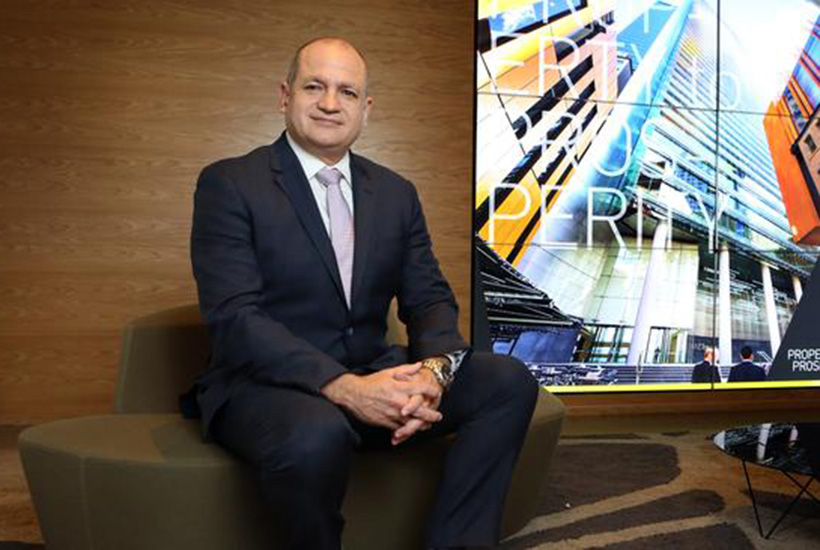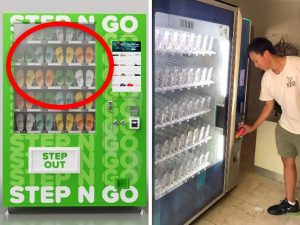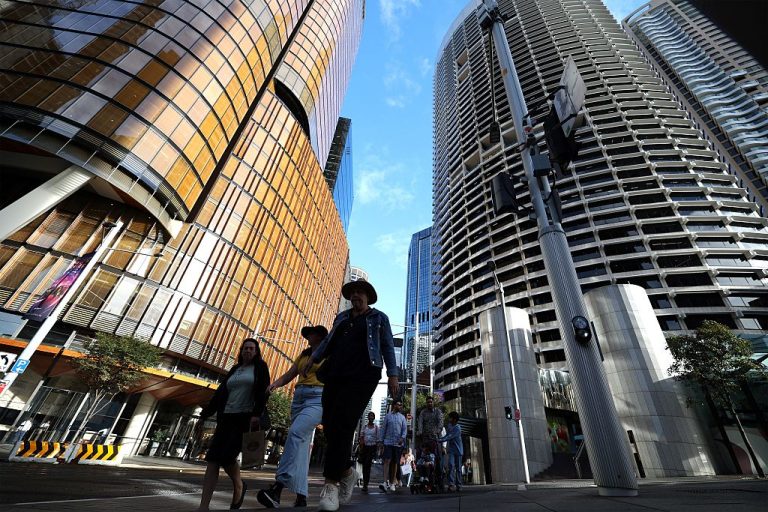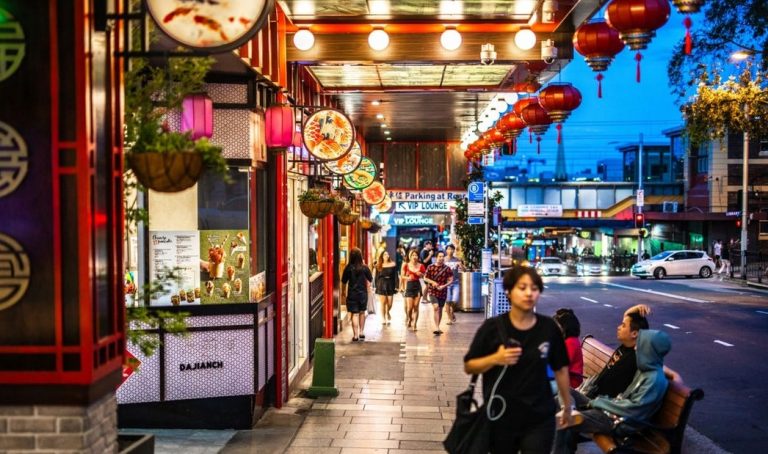The uncertainty generated by Melbourne’s second lockdown will drag on the retail landlords exposed to the Victorian capital with many still dealing with outstanding rent disputes from the first lockdown with heavyweight GPT Group warning of a deep impact of the strict regime.
The sector is bracing for further bad news after GPT revealed it had collected just 36% of retail rents in the second quarter as the pandemic struck and had completed 26% of expected deals under the Morrison government’s leasing code.
It copped heavy valuation writedowns of about $711.3m in the half and did not provide earnings guidance after the combination of the Melbourne outbreak and retail property crisis made forecasting difficult.
“The introduction of stage 4 restrictions has limited our opening count to essential retailers only and for the next six weeks and we would expect our traffic would be materially impacted,” GPT chief executive Bob Johnston said.
He added that due to the uncertainty over the resumption of a normalised retail trade in Victoria, the company anticipated a longer period in closing out deals with retailers seeking rental assistance.
Johnston said rent collection had fallen lower in late March and April and then picked up as stores reopened by late May and June. While supermarkets, discount department stores and electronics retailers kept paying, other shops closed or only partly paid, he said.
Melbourne’s second lockdown is biting hard with only about 20 retailers open of the 400 at the Highpoint Shopping Centre and a number also doing click and collect, Johnston said, but noted it was only week two of the restrictions, which made it too early to gauge their impact.
The landlord has already taken heavy writedowns, including on Victorian assets, and sales were off steeply during the first lockdown, with larger centres particularly affected.
Victoria faces business collapses and heavy job losses but Mr Johnston rejected the notion that a renewed lockdown would drive a permanent reduction in centre values, unless there was a longer term impact on economy.
To offset its retail issues, GPT is pushing into logistics with plans to lift the sector to more than 20% of its portfolio. “We want to continue to grow our position so we have a well balanced, diversified portfolio.”
Johnston said retail would be influenced by job growth and unemployment as JobKeeper tapered off and the company could not give guidance in the circumstances.
GPT’s net income from retail was down 52.7%, primarily due to a 37% fall in net property revenue. Outside of Victoria, 95% of stores are open and customer visitation is at 85% of last year’s numbers.
Victoria had 62 per cent of stores open at the end of July but this shrank due to the latest rules. The half-year results detailed the strain on GPT’s shopping malls, including Melbourne Central and a stake in Northland via a managed fund. Malls co-owned by Scentre and Vicinity were also hit.
Comparable centre moving annual turnover (MAT) was down 18.2% at Melbourne Central to $471.7m and specialty MAT fell by 19.9%. Highpoint suffered a 12.5% fall to $902m and specialty MAT was down 17.6%.
In the shopping centre fund, comparable centre MAT was off by 8.4% at Northland and Wollongong Central was down by 9.2% on this metric.
Overall, the listed landlord plunged to a $519.1m first-half loss on the back of the heavy property writedowns. “I continue to expect office and industrial to remain strong but retail is uncertain,” Johnston said.
In a sign it will look to bring its centres back into operation with tenants paying full rents, he said there was no need to extend the Morrison government’s leasing code for small tenants as some retail groups had demanded.
“We don’t really think there is a need for that,” he said. “Market forces should be allowed to play out.”
He added that it was too early to tell the what impact Victoria’s stage 4 restrictions would have on rent collections this month.
The retail issues will be reflected across the property sector as Vicinity Centres, part owner of Melbourne’s landmark Chadstone shopping centre, and the Scentre Group, operator of the local Westfield empire, report later this month.
Retail landlords are particularly under pressure and the GPT result showed that offices had been affected to some extent and logistics property was surging.
Johnston said he was disappointed GPT’s share price was factoring in the prospect of further valuation declines, but said the company believed in the longer-term strength of Melbourne, Sydney and Brisbane.
While he expected the pandemic to slow population growth he predicted that shopping centres would play a major role as customers flocked back once restrictions lifted — as they did after the first wave.
“Clearly there was pent-up demand,” he said, arguing that customers wanted both physical and online shopping.
Moelis traders said the first-half result looked soft and they expect a tough second half given the trust’s exposure to Melbourne.
GPT’s shares closed at $3.85.
This article originally appeared on www.theaustralian.com.au/property.








